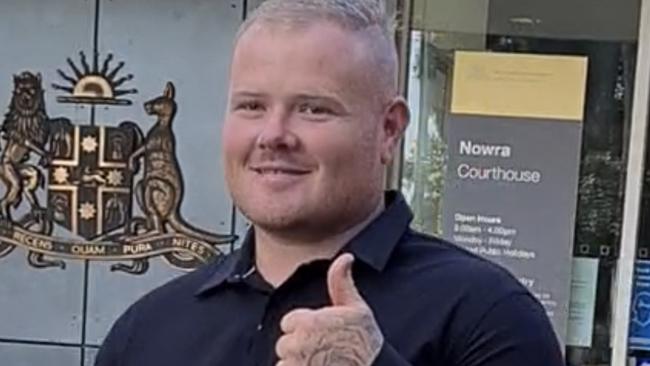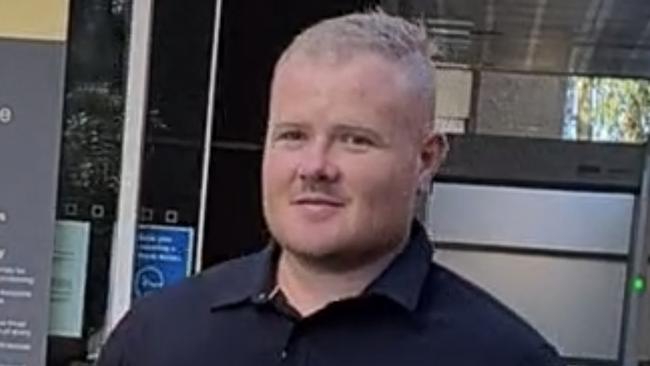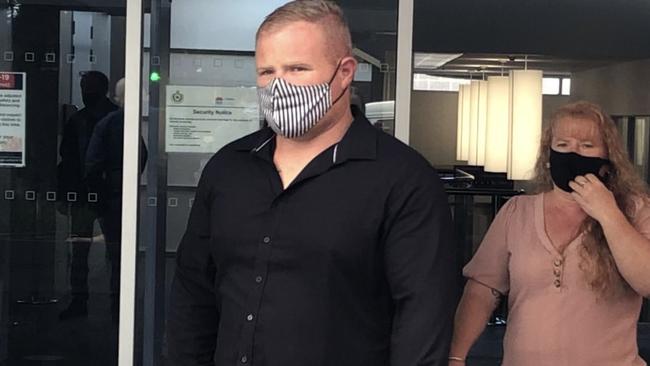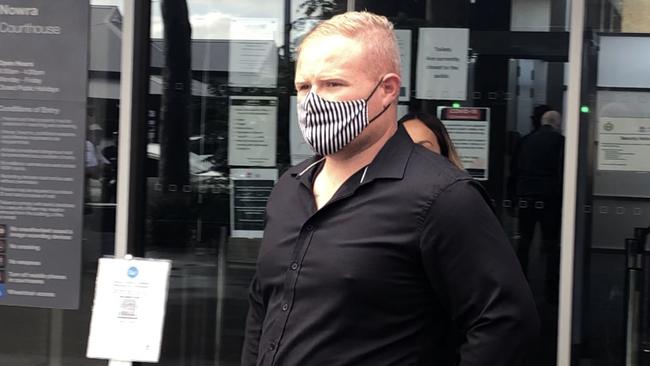Zachary Kershaw sentenced for cocaine supply after Nowra Bomaderry Jets players investigated
One of multiple south coast rugby league players under investigation for alleged drug supply has now been sentenced for his role supplying cocaine at a number of regional venues.
The South Coast News
Don't miss out on the headlines from The South Coast News. Followed categories will be added to My News.
An once aspiring rugby league star has dodged jail time after pleading guilty to a cocaine conspiracy that has ensnared multiple current and former players.
Former Nowra-Bomaderry Jets player Zachary Kershaw was charged with drug supply and participation in a criminal group after a months-long police investigation.
Appearing before the Nowra Local Court for sentencing on March 22, Kershaw’s lawyer, Tony Cullinan, argued Kershaw was low on the drug supply chain, having bought and sold the illicit drug to support his own habit.
“Kershaw would buy an ounce at a time and sell it at smaller amounts for street level use,” Mr Cullinan said.
“The position of a street level dealer is significantly less than people higher up on the chain.
“Even though it is not an insignificant amount, he was not buying in bulk.”

Mr Cullinan argued that Kershaw was not profiteering off of the trade, and was only dealing to a small circle of friends and associates who he knew on a personal level, which included previously identified players.
“He was not supplying drugs for greed, in the sense of financial or material benefit,” he said.
The solicitor similarly argued Kershaw’s involvement in a criminal group was also on the lower-end, telling the court that he would purchase cocaine from a man identified as Mr Emerson.
“Kershaw would give money to Mr Emerson who would buy the drugs and supply him with the amount,” Mr Cullinan said.
“Kershaw didn’t know who the supplier was.
“He was essentially just a purchaser, and didn’t share in any of the profits.”

While Mr McRobert agreed with Mr Cullinan’s written and verbal submission, he dismissed the idea that Kershaw’s role was not without significance.
“He was not at the top of the chain, but like any chain, it’s only as strong as its weakest link,” Mr McRobert said.
“Without people like Kershaw, the chain would not operate.”
During sentencing, Mr Cullinan described in detail the circumstances that led to the offences, which included a period of emotional and financial turmoil.
The months-long sequence of drug deals exposed by police through intercepted telephone and encrypted online messages on the app Signal took occurred while Kershaw’s father was undergoing cancer treatment and shortly after the death of his brother-in-law.
That period, Mr Cullinan argued, led Kershaw to pursue drugs as a remedy for his grief.

While Mr McRobert said he was sympathetic to the surrounding circumstances, he expressed concern that the offences had occurred over a period of time, and were not a “one off”.
A prior charge of drug supply was also raised by Mr McRobert, who argued that despite having evaded a prison sentence for that charge, he was not deterred.
“Why has he kept so narrowly escaping a full blown prison sentence?” Mr McRobert asked.
“I understand this was a difficult loss, but there was drug supply once before in 2010.
“While I accept it was a long period of time, it has not deterred him on this occasion.”
Mr McRobert stated that, nonetheless, prior to the current charges, Kershaw was “basically someone that abided by the law”.
“There is nothing to suggest he was engaging with the activities that brought him before the court until he started having difficulties in his life,” he said.
Mr McRobert was told the former football player had been stood down from his role as a local coach, something which Mr Cullinan argued was a great loss to Kershaw.
According to an NSWRL spokesperson, Kershaw was stood down indefinitely until the criminal proceedings were dealt with in court.
“Kershaw will now be subject to a NSWRL Code of Conduct hearing and will remain stood down until this has taken place,” the spokesperson said.

In sentencing, Mr McRobert agreed that Kershaw had not enriched himself.
“I suspect any part of the profits may have been used up to buy drugs for personal use, which is a sadly too common occurrence,” he said.
Mr McRobert stated that Kershaw’s written submissions, including a personal letter and an “extensive” sentencing guide, had demonstrated his remorse.
Mr McRobert sentenced Kershaw to a $500 fine for a lesser charge of alprazolam possession, a sleeping pill Mr Cullinan said Kershaw was using for anxiety.
For the charges of supply and participation in a criminal group, Mr McRobert sentenced Kershaw to a 12-month community corrections order.
Outside of court, Kershaw appeared pleased with the result, smiling to members of the press and raising a thumbs up.




